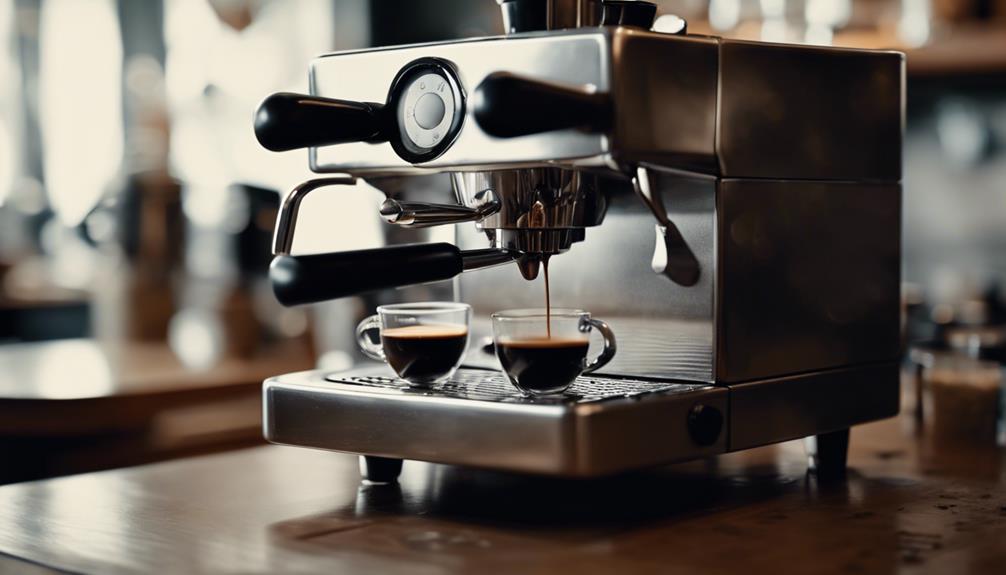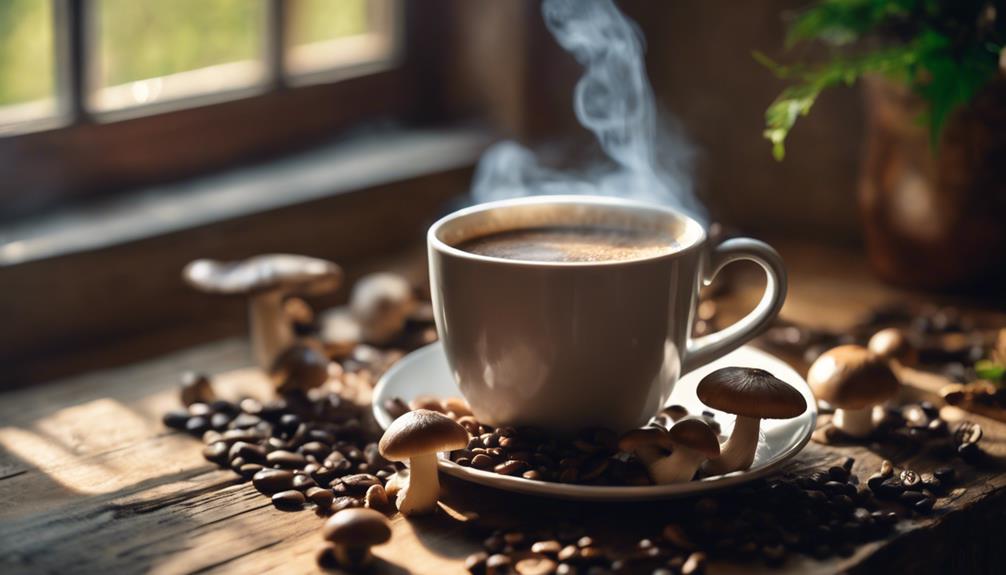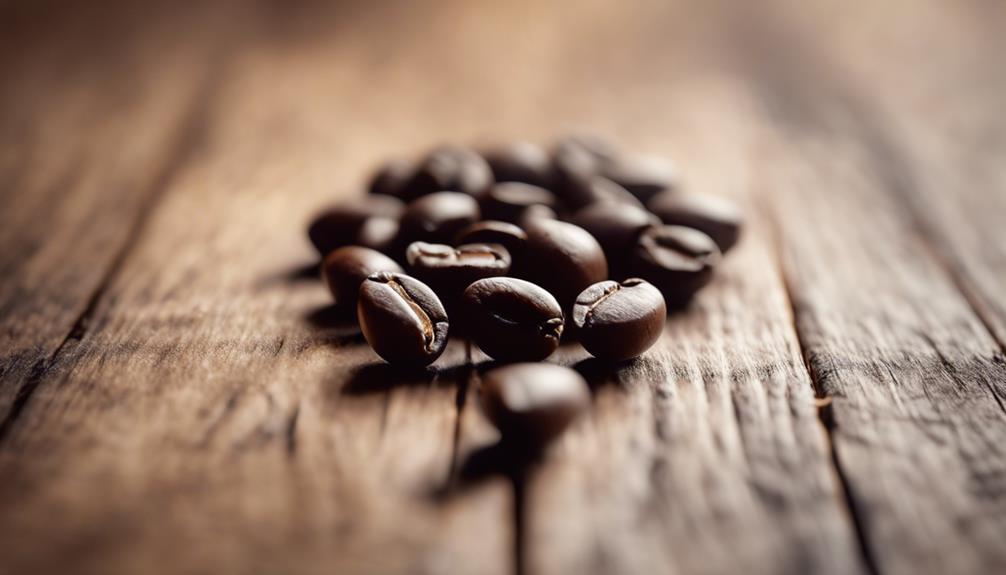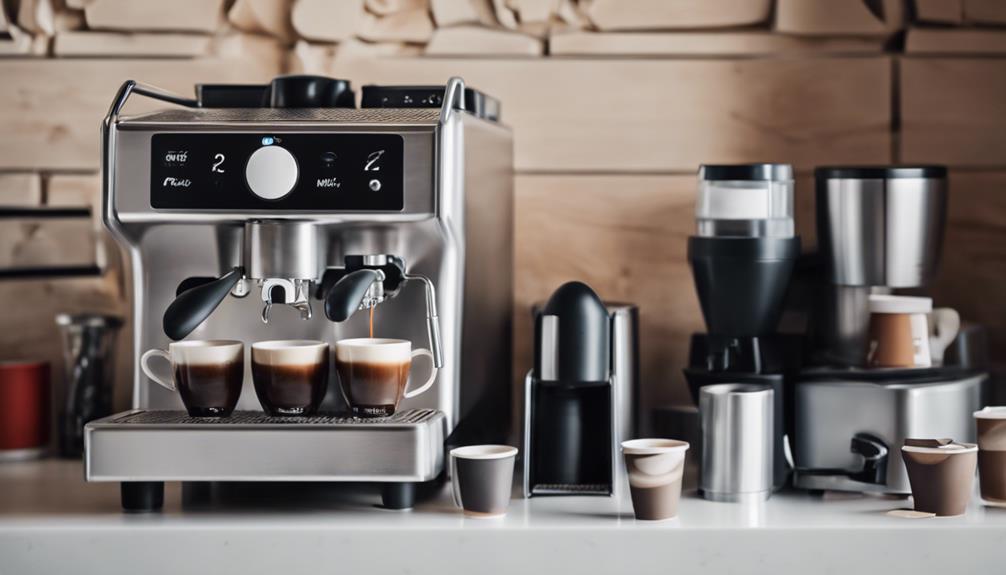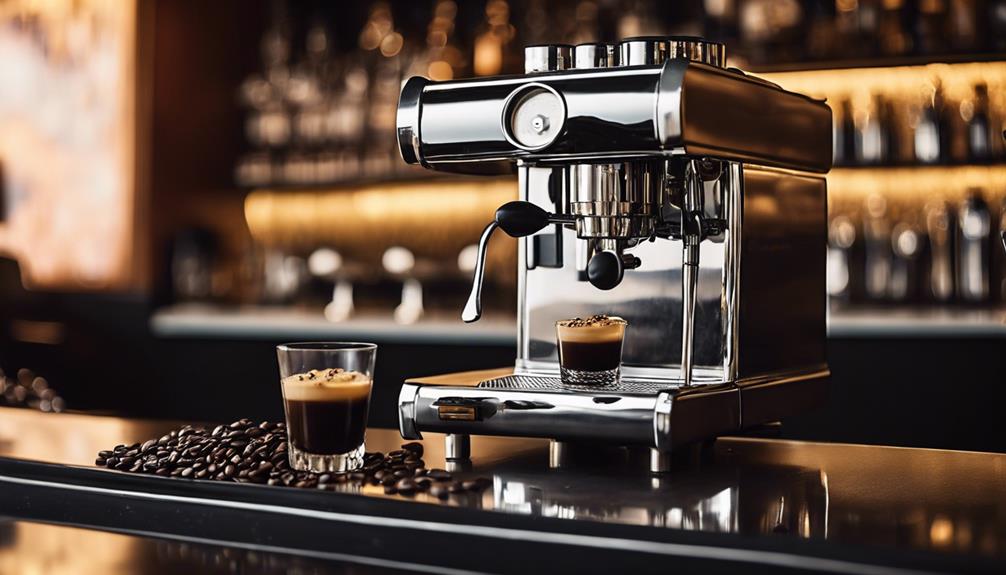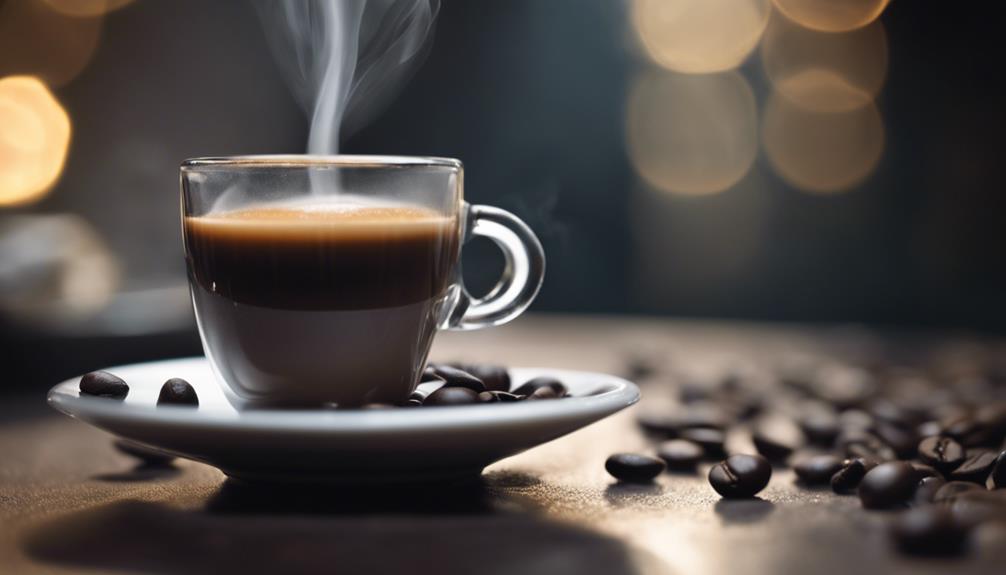You’re on the verge of becoming an expert in perfecting your espresso shot! To begin, focus on mastering the recipe components: dose, yield, and brewing time. Aim for a ratio of 1:1 to 1:3, with a brewing time of 25-30 seconds. Then, adjust your grind size and distribution to ensure a uniform coffee bed. Tamping with precision is crucial, applying around 30 pounds of force at a 90-degree angle. By fine-tuning these factors, you’ll be on your way to pulling the ideal shot – with more to explore to enhance your espresso skills! To truly excel in the art of perfect espresso shots, it’s vital to pay attention to the finer points. This includes the temperature of your machine, the quality of your water, and the cleanliness of your equipment. Additionally, experimenting with different coffee beans and adapting your technique to their unique attributes can further elevate your espresso expertise. With dedication and practice, you’ll soon be crafting consistently flawless espresso shots that will impress even the most discerning coffee aficionados.
Key Takeaways
- Precise measurement of dose and yield is crucial for consistency and optimal flavor extraction in espresso brewing.
- Ideal grind size is essential, and regular adjustments are needed as coffee ages to maintain optimal brewing conditions.
- Even coffee bed distribution is vital for peak extraction and uniform water flow, preventing channeling and poor shot quality.
- Proper tamping technique, with consistent pressure, prevents channeling and ensures balanced acidity and strength in espresso shots.
Mastering Espresso Recipe Components
To craft the perfect espresso shot, you need to master the three key components of an espresso recipe: dose, yield, and time, which work in harmony to deliver a balanced and flavorful beverage.
The dose refers to the amount of coffee you use, typically ranging from 16-18g for a double shot. However, experimenting with different doses, like Clive's signature 20g recipe, can yield unique flavor profiles.
The yield is the amount of liquid espresso you're aiming to produce, usually between 1:1 to 1:3 of the dose.
The brewing time, typically between 25-30 seconds, can be adjusted by modifying the grind size. Coarser grinds result in faster flow, while finer grinds slow it down.
By finding the perfect balance of these components, you'll be able to extract the full potential of your coffee beans.
Remember, precision is key, so use a scale to measure both the dose and yield during the brewing process.
With practice and patience, you'll be able to consistently craft espresso shots that impress even the most discerning coffee connoisseurs.
Dose, Yield, and Brewing Time Essentials
As you endeavor to perfect your espresso shot, you'll need to get a handle on the essentials of dose, yield, and brewing time.
You'll want to calculate the right dose of coffee, balance it with the ideal yield ratio, and optimize your brewing time to bring out the best flavors.
Dose Calculations
You'll need to dial in the perfect dose, yield, and brewing time to craft exceptional espresso shots that consistently impress.
When it comes to dose calculations, it's important to get it just right. For a double espresso shot, aim for a dose of 16g to 18g of ground coffee, and for a triple shot, use 20g to 22g. This will guarantee you're extracting the ideal amount of flavor from your beans.
But it's not just about the dose; the grind size also plays a significant role. A finer grind will slow down the flow and may extend the brewing time, while a coarser grind will accelerate it. You're aiming for an ideal brewing time of 25 to 30 seconds, which helps enhance flavor extraction.
By adjusting the grind size, you can achieve this sweet spot. Remember, consistent measurements and monitoring of both dose and yield are critical for replicating quality shots and guaranteeing optimal flavor profiles.
With practice, you'll find the perfect balance to craft espresso shots that impress even the most discerning palates. By experimenting with different grind sizes, tamping pressures, and extraction times, you’ll gradually develop a keen sense of how to achieve the ideal flavor profile. Using an espresso tamper tool can also help ensure a consistent and even tamp, resulting in a more uniform extraction. With dedication and attention to detail, you’ll be able to consistently create espresso shots that are smooth, rich, and full of complexity.
Yield Ratios Matter
Mastering the art of espresso requires a deep understanding of yield ratios, which involve a delicate balance of dose, yield, and brewing time to extract the perfect shot. You're likely wondering, what's the ideal yield ratio for a great espresso shot? The answer lies in finding the sweet spot between dose, yield, and brewing time.
| Dose (g) | Yield (g) | Brewing Time (s) |
|---|---|---|
| 16-18 | 30-36 | 25-30 |
| 20 | 30 | 25-30 |
| Varies | Varies | 25-30 |
| Varies | Varies | Varies |
For a double shot, aim for a dose of 16-18 grams of ground coffee, which should produce a yield of approximately 30-36 grams of liquid espresso. A common brew ratio for espresso is 1:1.5, meaning for every 20 grams of coffee, you're aiming for a yield of 30 grams of liquid espresso. Remember, consistent measurements using a scale for both dose and yield are essential for replicating successful shots and maintaining quality. By adjusting the grind size in response to yield and brew time, you can achieve the desired flavor profile.
Brew Time Optimization
Optimize your brew time by targeting the sweet spot of 25-30 seconds, where the perfect balance of flavor extraction and crema formation occurs. This ideal brew time allows for the best balance of flavors to shine through in your espresso shot.
To achieve this, you'll need to dial in the right dose and yield. Aim for a dose of 16-18 grams of coffee and a yield of 30-36 grams of liquid espresso for a balanced shot.
Adjusting the grind size is essential for controlling brew time; a finer grind slows down the extraction, while a coarser grind speeds it up. Regularly monitor the yield during shot pulling with a scale to maintain consistency and aim for a brew ratio of 1:1.5 to achieve the desired flavor profile.
Finally, make certain you're using fresh coffee beans that have been rested for at least 14 days post-roast to allow for CO2 release, which aids in achieving a more stable and flavorful extraction during brewing.
Distribution, Tamping, and Extraction Techniques
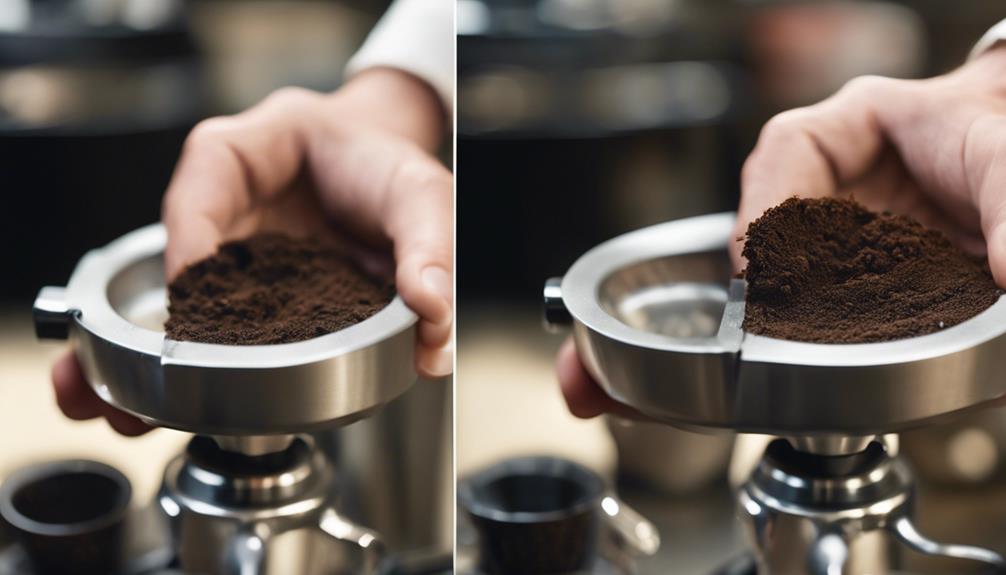
As you endeavor to perfect your espresso shot, you'll need to focus on distributing coffee grounds evenly in the portafilter and tamping them with the right pressure.
You're aiming for a uniform coffee bed that allows water to flow through consistently, which is essential for balanced flavor.
Even Coffee Bed Distribution
You take the first step towards perfecting your espresso shot by ensuring the coffee grounds are evenly distributed across the portafilter basket. This is vital for peak extraction, as it promotes uniform water flow and prevents channeling during the brewing process.
To achieve an even coffee bed, gently tap the portafilter to settle the grounds before tamping. This espresso tip will help you avoid uneven distribution, which can lead to poor shot quality.
Using a bottomless portafilter can also help you identify and correct distribution errors in real-time, allowing you to adjust your technique accordingly. Remember, an even coffee bed is essential for a perfect espresso shot, so take your time and get it right.
Optimal Tamping Technique
With your coffee bed evenly distributed, it's time to focus on tamping, a crucial step that requires precision and control to guarantee proper extraction.
Hold your tamper at a 90-degree angle and apply gentle, consistent pressure, aiming for about 30 pounds of force. This will assure your coffee puck is compact without being overpacked. A well-tamped puck prevents channeling, which can lead to uneven extraction and undesirable flavors in your espresso shot.
As you adjust the grind size based on tamping pressure, you'll achieve an ideal extraction time of 25-30 seconds, balancing acidity and strength effectively.
Remember to clean your portafilter after each use to prevent old coffee oils and residues from affecting the flavor of your next shot.
Pulling the Perfect Shot: Tips and Tricks
To master the art of pulling the perfect shot, start by nailing down the fundamentals: a precise dose of coffee, an even tamp, and a carefully calibrated grind.
For a double shot, aim for 20-22g of freshly ground coffee, which should yield approximately 30-36g of liquid espresso within a 25-30 second extraction time. Use a scale to monitor both the coffee dose and the liquid yield during extraction, as precision in measurements is vital for replicating successful shots.
When it comes to grind size, adjust it based on shot timing. If your shot is pulling too quickly, make the grind finer; if it's too slow, coarsen the grind to achieve the ideal flow rate.
Additionally, verify your espresso machine is properly preheated and clean before brewing, as this will help maintain the correct brewing temperature and prevent off-flavors in your shots.
Coffee Bean Resting and Grind Size Adjustment
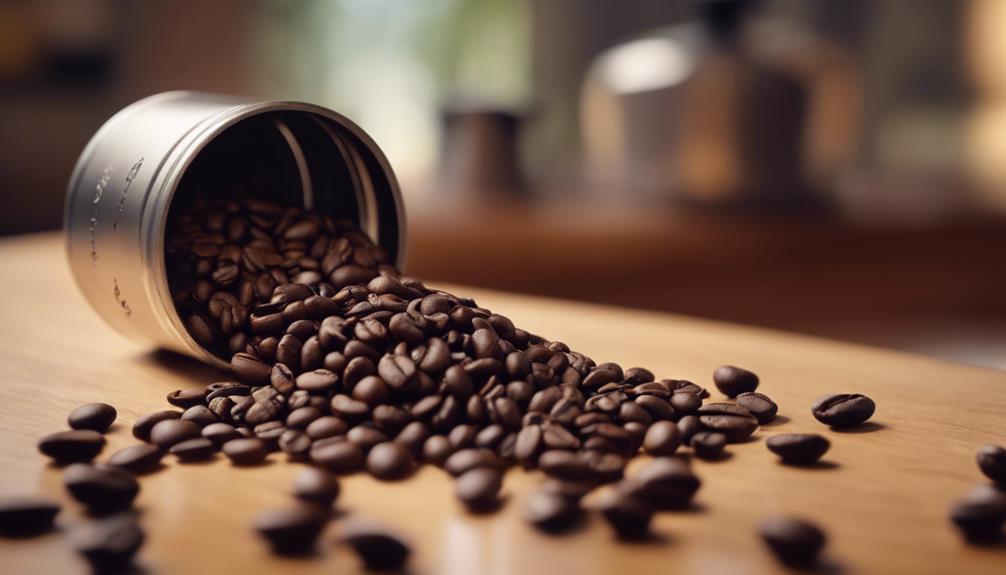
Freshly roasted coffee beans demand a 14-day resting period post-roast, allowing CO2 to dissipate and releasing a sweeter, more textured espresso. During this time, you'll notice a significant difference in the flavor profile of your fresh coffee.
Now, it's time to think about grind size adjustment. When it comes to brewing espresso, the ideal grind is essential. You're aiming for a texture similar to table salt, which allows for adequate water flow and extraction during the brewing process.
However, you'll need to make regular adjustments to your grind size as your coffee ages. If your shots are taking too long, it's likely your grind is too fine, and if they're too short, it's too coarse. Monitor your shot timing and adjust your grind size accordingly.
For shots over 30 seconds, use a coarser grind, and for shots under 25 seconds, use a finer grind. By getting your coffee grounds just right, you'll be well on your way to perfecting your espresso shot.
Espresso and Milk Integration Secrets
You're now ready to reveal the secrets of combining espresso and milk, an essential step in crafting exceptional milk-based drinks.
When pouring milk into your perfect espresso shot, use a controlled, steady motion to achieve better layering and create distinct patterns like hearts or rosettas.
Swirling the espresso while pouring the milk helps to create a shiny and vibrant finish, enhancing the overall visual appeal of the drink.
To guarantee even flavor distribution, proper integration of espresso with milk is key.
Mastering this technique not only elevates the drink's flavor but also improves the overall quality of espresso beverages served at home or in cafés.
Tricks to help you accomplish this include using the ideal milk temperature of 150°F to 155°F for a creamy texture without scalding the milk.
By following these tips, you'll be able to create milk-based drinks that are both visually stunning and bursting with flavor.
With practice, you'll be a pro at integrating espresso and milk, taking your coffee game to the next level.
Avoiding Common Brewing Miscalculations
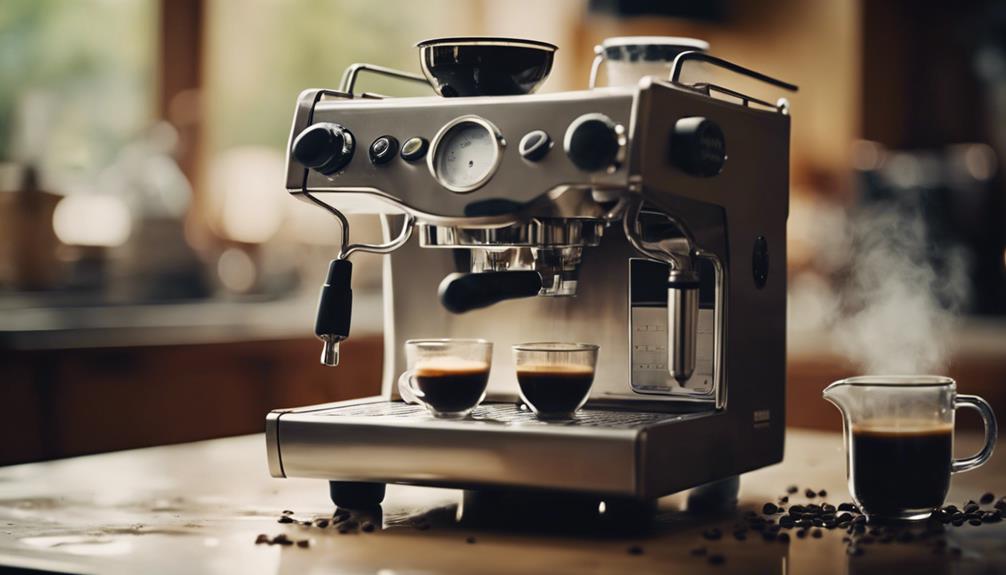
Your espresso machine is only as good as the brew it produces, and even the slightest miscalculation can throw off the entire shot. To perfect your espresso recipe, it's crucial to avoid common brewing mistakes that can ruin your coffee.
Here are some common brewing miscalculations to watch out for:
- Incorrect brewing time: Aim for an extraction time between 25 to 30 seconds. Over-extraction (above 30 seconds) leads to bitter flavors, while under-extraction (below 20 seconds) results in weak and sour flavors.
- Inconsistent tamping pressure: Make sure you apply a consistent pressure of around 30 pounds to avoid uneven extraction and channeling.
- Incorrect water temperature: Maintain a temperature between 195°F to 205°F for peak flavor. Water outside this range can lead to undesirable flavors in your espresso.
- Poor machine maintenance: Regularly clean and descale your espresso machine to prevent off-flavors and maintain consistent quality in every shot.
Frequently Asked Questions
How to Get the Perfect Espresso Shot?
You're on a mission to get the perfect espresso shot! Start by measuring your coffee dose accurately, then grind it to a medium-fine consistency, and tamp it with consistent pressure to guarantee a balanced flavor.
What Are the 4 Qualities of a Perfect Espresso Shot?
When you're on the hunt for the ultimate espresso experience, you're looking for a shot that checks four essential boxes: rich crema, perfect balance, velvety body, and a flavor profile that's nothing short of sublime.
How Do You Make an Espresso Shot Better?
You're wondering how to make an espresso shot better? Start with freshly roasted beans, adjust the grind size, and maintain consistent tamping pressure. Then, monitor water temperature and regularly clean your machine for a superior shot.
How Do You Make Espresso Like a Pro?
You'll be surprised to know that 67% of espresso shots are brewed incorrectly! To make espresso like a pro, start by measuring a precise dose of 18-20 grams of freshly ground coffee, then adjust grind size and tamping to achieve ideal flavor extraction.
Conclusion
You've made it to the end of this espresso-perfecting journey, and what a relief!
You're probably still far from a pro, but hey, that's what makes the pursuit of the perfect shot so thrilling, right?
The good news is, with these expert tips, you'll be well on your way to creating a shot that'll make even the most discerning barista nod in approval.
Now, go forth and experiment – and don't worry, it's okay to mess up (again, and again, and again).
